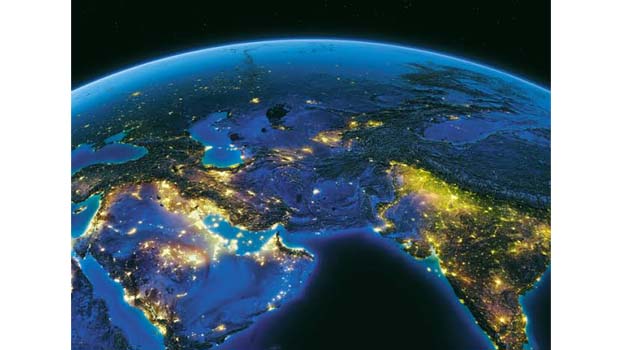The political rise of the Indian Diaspora
Nothing symbolises this as much as the spectacular rise of Kamala Harris in the US

The Indian diaspora, spread across 150 countries and numbering over 32 million, has much to be proud of. And justifiably so. For the descendants of the labour diaspora of the nineteenth century, created by the British after the abolition of slavery in 1833, the passage out of their homeland was perilous, torturous, and often life-threatening. Those who made it to places as distant as Fiji in the Pacific or Surinam in South America never came back.
Even those transported closer home, to Myanmar, Malaya, Mauritius, or Africa, often chose to stay on, dropping roots in their adopted countries, raising families and building new lives. M.K. Gandhi, himself a “coolie barrister,” became a Mahatma (great soul) fighting for the rights of indentured workers in South Africa. Today, many of the descendants of those migrants have risen to positions of leadership and responsibility in nearly all walks of life in their host countries.
The oil boom in the Middle East gave rise to a new labour diaspora in the twentieth century, especially after the formation of Organisation of the Petroleum Exporting Countries (Opec) in 1960. Taking control of their own oil and natural gas resources, member states embarked on an unprecedented modernisation and development drive rarely seen anywhere or anytime in human history.
Inexpensive skilled manpower
Desert landscapes were transformed almost miraculously into shimmering, New-Age conurbations, with dazzling skyscrapers and world-class business districts. This frenetic construction and expansion boom required an immense labour force. In most part, this was supplied by the hard-working and inexpensive skilled manpower from the Indian subcontinent.
In the United Kingdom, which once ruled India and
controlled over 20 per cent of the world’s territory,
Indians occupy some of the highest positions in
conservative Prime Minister Boris Johnson’s cabinet
Almost simultaneously, the Indian professional diaspora of the mid-twentieth century spread itself across much of the rapidly decolonising globe after World War II. Its members were much more fortunate. Already well-educated and qualified in India, they rose quickly in the countries of advanced capital in Europe, North America, or Oceania. Given that many of their host countries were English-speaking, they had an added linguistic advantage.
Even today, though computer programming takes place in code, the predominant language of coders, as also their instruction manuals, remains English. Indian techies have done so well because their English skills are often as good as their prowess in math and engineering. Any wonder that the CEOs of the top tech companies in the world, including Google, Microsoft, IBM, Arista, and Nokia are of Indian origin?
If anything is new in the growing power of the Indian diaspora it is their recently found political clout. Nothing symbolises this as much as the spectacular rise of Kamala Harris as the Vice President designate of the United States. Part Indian, part Jamaican, Harris is the first woman of South Asian descent to be elected to this high office. What is more, she has every likelihood of running for the highest office in the land, especially if the Biden-Harris team does well. Or even earlier, in the event of an emergency, to serve as the acting US President.
In the United Kingdom, which once ruled India and controlled over 20 per cent of the world’s territory, Indians occupy some of the highest positions in conservative Prime Minister Boris Johnson’s cabinet. Not only is the Chancellor of the Exchequer, Rishi Sunak, of Indian origin, but so are Priti Patel, Home Secretary, and Alok Sharma, Secretary of State for Business, Energy, and Industrial Strategy. The opposition Labour Party, too, has prominent political leaders of Indian origin.
Faring well politically
In Canada, Indians, especially Punjabis, have always fared well politically. Prime Minister Justin Trudeau’s cabinet has four of them: Anita Anand, Navdeep Bains, Bardish Chagger, and Harjit Sajjan. In British Columbia, the count of Indian-origin MPs is an astonishing 20, of which 19 are Punjabis. Earlier, Ujjal Dosanj, already made it as the 33rd and first Indian-origin Premier of British Columbia (BC).
In Ireland, half-Indian Leo Varadkar served as the Taoiseach or Prime minister. These notable achievements are in addition to a long line of Indian origin leaders in states like, Guyana, Malaysia, Mauritius, Seychelles, Singapore, Surinam, Trinidad and Tobago, Tanzania, and so on, where Indians have substantial populations.
On 25 November, New Zealand swore in a new Indian origin MP. Gaurav Sharma, born in Hamirpur, Himachal Pradesh, came to New Zealand as a young boy. He qualified as a medical doctor before being elected to Parliament at the age of thirty-three. Sharma took his oath in two languages, Maori and Sanskrit.
Explaining his choice, he said: “I speak multiple Indian languages and wanted to choose a language that would represent wide range of current languages spoken in India. At over 3,500 yrs old Sanskrit is the oldest & considered the mother language of many Indian languages that originated from it.” Currently, Priyanca Radhakrishnan, MP, is already a serving Minister for the Community and Voluntary Sector in New Zealand. Both follow in the wake of Anand Satyanand who was the country’s 19th Governor-general.
Has the Indian diaspora at last broken through the proverbial political glass ceiling? The answer certainly seems to be a thumbing affirmative.
Makarand R. Paranjape is Director, Indian Institute of Advanced Study.
Source: Gulf News



